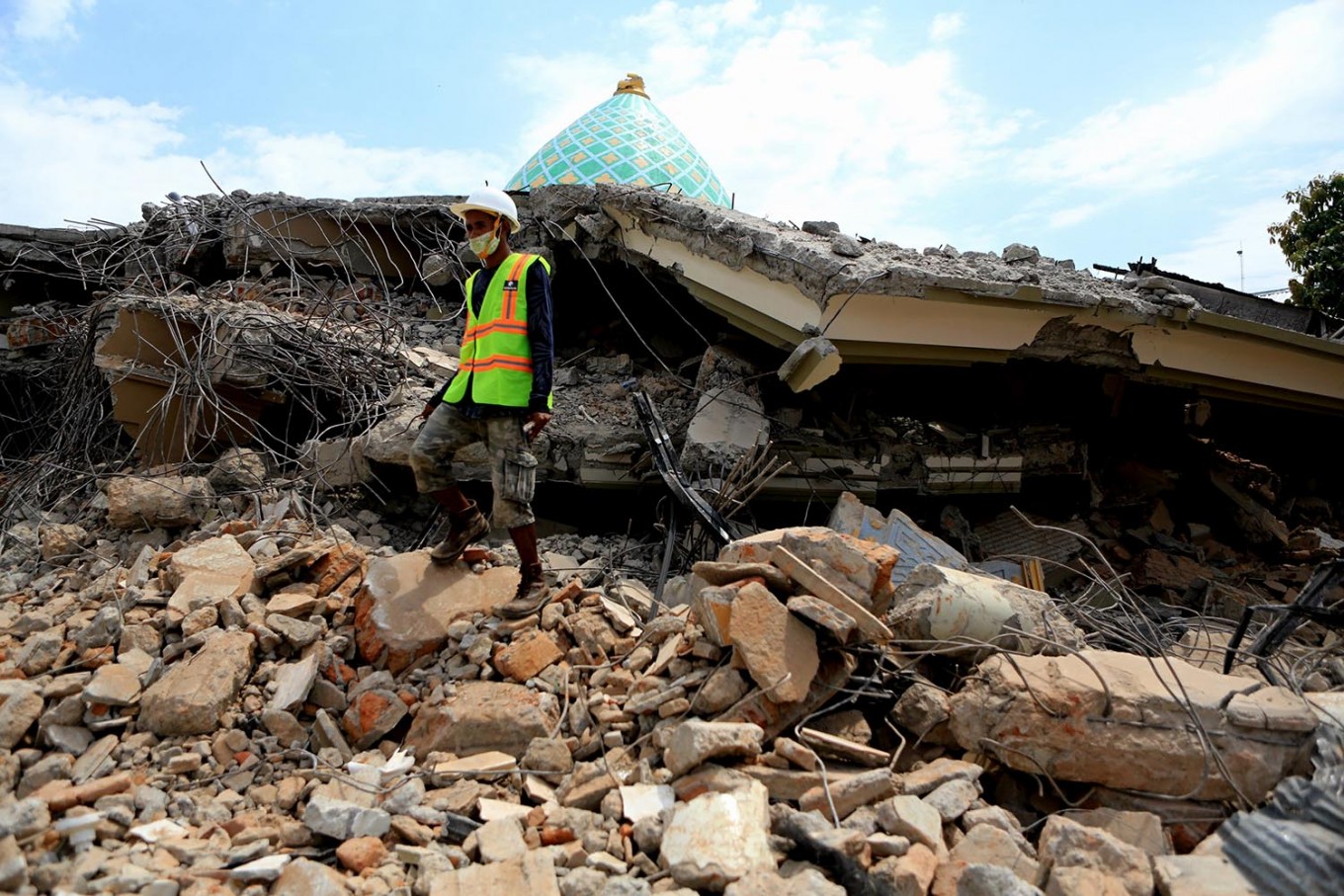Popular Reads
Top Results
Can't find what you're looking for?
View all search resultsPopular Reads
Top Results
Can't find what you're looking for?
View all search resultsHuman rights protection for Lombok earthquake victims
Which human rights are currently at stake in Lombok?
Change text size
Gift Premium Articles
to Anyone
S
ince July 29, the island of Lombok has been struck by dozens of earthquakes with magnitudes of over 4.0 on the Richter scale. A magnitude 7.0 quake that hit on Aug.5 killed 460 people and displaced several hundred thousand. Earthquakes and aftershocks show no signs of ending yet and Lombok struggles to recover with the help of authorities, NGOs and other private parties.
Countries affected by large earthquake face multiple challenges both short term as well as long term. But while tremors may stop eventually, the cleaning and rebuilding process can last for years. In addition, there is the psychological damage suffered by earthquake victims.
It has become increasingly evident that human rights should play a central role in earthquake recovery. Human rights are human being’s inherent, equal and inalienable rights. However, in contrast to humanitarian assistance, development aid and disaster risk reduction, the connection between earthquakes and human rights does not seem self-evident. A common thought is that earthquakes impose challenges that are mainly of a humanitarian nature – and not per se a legal one.
The international human rights framework appoints individuals as “rights holders”, entitled to a number of human rights and fundamental freedoms. States, on the other hand, are “duty bearers’”, bearing the threefold responsibility to respect (refrain from interfering with), protect (individuals against abuses of) and fulfill (take positive actions to facilitate) human rights.
The above concept stands under all circumstances. When an earthquake strikes, people remain entitled to their human rights, regardless of whether they have suffered damage. However most people become vulnerable to human rights violations in the aftermath of an earthquake. They become internally displaced when homes are destroyed. Children lose their right to education when schools are damaged. To provide additional protection and to prevent and minimize to the largest extent possible human rights violations that may occur, earthquake recovery approaches should make human rights a top priority.
Which human rights are currently at stake in Lombok?
In Lombok, where hundred thousands of people have been displaced and refugee camps have been set up all across the island, the earthquakes have imposed a direct threat to people’s right to safety let alone adequate housing, food and clothing.
The right to adequate housing implies more than simply a roof over one’s head. It is the right to live somewhere in security, dignity and peace. Adequate housing means adequate privacy, space, lighting and ventilation, basic infrastructure, access to water, sanitation and heating in cold temperatures. In addition, housing is “adequate” when it protects people from vagaries of nature such as cold, damp, heat, rain, wind and other threats, structural hazards, and disease vectors.
Food, on the other hand, is considered “adequate” when it is available in a quality and quantity sufficient to satisfy dietary needs of individuals and it is sustainably accessible without inference of other human rights. The right to food implies more than simply being “free from hunger”. It is not simply having access to a minimum amount of calories. Food should meet nutritious standards to adequately satisfy dietary needs.
Key to effective earthquake recovery in Lombok is to integrate the basic needs of victims into one comprehensive and sustainable plan of action that prioritizes access to adequate levels of food, water, sanitation, education, health and housing. Refugee camps in Lombok may provide temporary shelter and relief – but fail to provide adequate housing in terms of security, dignity and peace. Providing boxes of instant noodles to earthquake victims may fulfill the “quantity” criterion of food, but how long can instant noodles satisfy long-term dietary needs in terms of quality?
Non-discrimination and equality should be safeguarded during all stages of humanitarian assistance. Interventions should focus on those most in need of assistance and protection – and prevent any remote villages, where access to main roads is limited, to be forgotten or thought to be left behind.
***
The writer graduated cum laude from Utrecht University with a master’s degree in international law and human rights. She is an independent human rights researcher who has been living in Indonesia for over four years.










